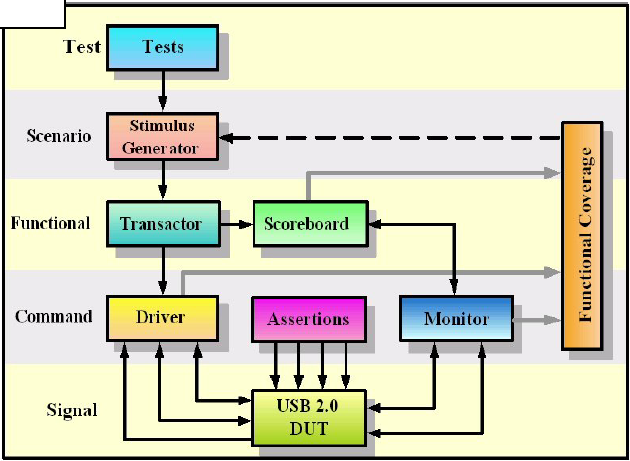| | - A minterm is the product of N distinct literals where each literal occurs exactly once.
- A maxterm is the sum of N distinct literals where each literal occurs exactly once.
|
| | For a two-variable expression, the minterms and maxterms are as follows |
| | 
|
| | | X | Y | Minterm | Maxterm | | 0 | 0 | X'.Y' | X+Y | | 0 | 1 | X'.Y | X+Y' | | 1 | 0 | X.Y' | X'+Y | | 1 | 1 | X.Y | X'+Y' | |
| | 
|
| | For a three-variable expression, the minterms and maxterms are as follows |
| | 
|
| | | X | Y | Z | Minterm | Maxterm | | 0 | 0 | 0 | X'.Y'.Z' | X+Y+Z | | 0 | 0 | 1 | X'.Y'.Z | X+Y+Z' | | 0 | 1 | 0 | X'.Y.Z' | X+Y'+Z | | 0 | 1 | 1 | X'.Y.Z | X+Y'+Z' | | 1 | 0 | 0 | X.Y'.Z' | X'+Y+Z | | 1 | 0 | 1 | X.Y'.Z | X'+Y+Z' | | 1 | 1 | 0 | X.Y.Z' | X'+Y'+Z | | 1 | 1 | 1 | X.Y.Z | X'+Y'+Z' | |
| | 
|
| | This allows us to represent expressions in either Sum of Products or Product of Sums forms |
| | 
|
 | Sum Of Products (SOP) |
| | 
|
| | The Sum of Products form represents an expression as a sum of minterms. |
| | 
|
| | F(X, Y, ...) = Sum (ak.mk) |
| | 
|
| | where ak is 0 or 1 and mk is a minterm. |
| | 
|
| | To derive the Sum of Products form from a truth table, OR together all of the minterms which give a value of 1. |
| | 
|
 | Example - SOP |
| | 
|
| | Consider the truth table |
| | 
|
| | | X | Y | F | Minterm | | 0 | 0 | 0 | X'.Y' | | 0 | 1 | 0 | X'Y | | 1 | 0 | 1 | X.Y' | | 1 | 1 | 1 | X.Y | |
| | Here SOP is f(X.Y) = X.Y' + X.Y |
| | 
|
 | Product Of Sum (POS) |
| | 
|
| | The Product of Sums form represents an expression as a product of maxterms. |
| | 
|
| | F(X, Y, .......) = Product (bk + Mk), where bk is 0 or 1 and Mk is a maxterm. |
| | 
|
| | To derive the Product of Sums form from a truth table, AND together all of the maxterms which give a value of 0. |
| | 
|
| | 
|
 | Example - POS |
| | 
|
| | Consider the truth table from the previous example. |
| | 
|
| | | X | Y | F | Maxterm | | 0 | 0 | 1 | X+Y | | 0 | 1 | 0 | X+Y' | | 1 | 0 | 1 | X'+Y | | 1 | 1 | 1 | X'+Y' | |
| | Here POS is F(X,Y) = (X+Y') |
| | 
|
 | Exercise |
| | 
|
| | Give the expression represented by the following truth table in both Sum of Products and Product of Sums forms. |
| | 
|
| | | X | Y | Z | F(X,Y,X) | | 0 | 0 | 0 | 1 | | 0 | 0 | 1 | 0 | | 0 | 1 | 0 | 0 | | 0 | 1 | 1 | 1 | | 1 | 0 | 0 | 0 | | 1 | 0 | 1 | 1 | | 1 | 1 | 0 | 1 | | 1 | 1 | 1 | 0 | |
| | 
|
 | Conversion between POS and SOP |
| | 
|
| | Conversion between the two forms is done by application of DeMorgans Laws. |
| | 
|
 | Simplification |
| | As with any other form of algebra you have encountered, simplification of expressions can be performed with Boolean algebra. |
| | 
|
 | Example |
| | 
|
| | Show that X.Y.Z' + X'.Y.Z' + Y.Z = Y |
| | 
|
| | X.Y.Z' + X'.Y.Z' + Y.Z = Y.Z' + Y.Z = Y |
| | 
|
 | Example |
| | 
|
| | Show that (X.Y' + Z).(X + Y).Z = X.Z + Y.Z |
| | 
|
| | (X.Y' + Z).(X + Y).Z |
| | = (X.Y' + Z.X + Y'.Z).Z |
| | = X.Y'Z + Z.X + Y'.Z |
| | = Z.(X.Y' + X + Y') |
| | = Z.(X+Y') |






















